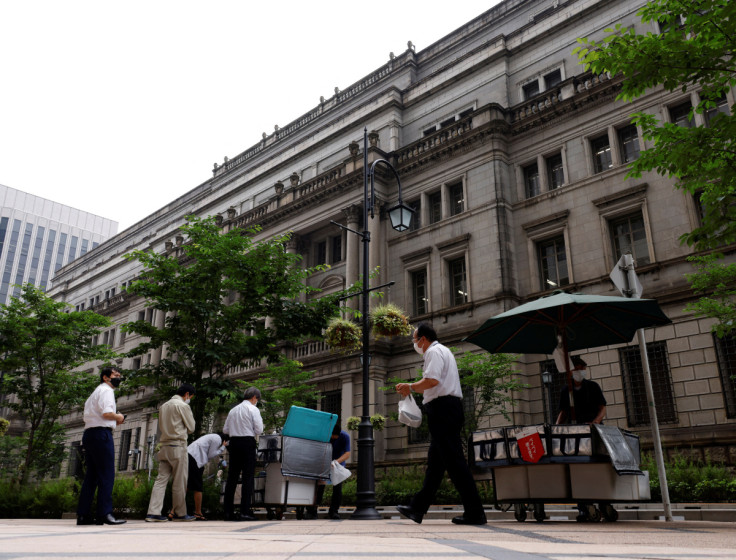BOJ May Adjust Ultra-loose Policy Before Kuroda's Term Ends - Ex-central Bank Exec

The Bank of Japan may adjust its ultra-loose monetary policy before dovish Governor Haruhiko Kuroda's term ends next April, if the economy strengthens enough to spur higher wages, former central bank executive Eiji Maeda told Reuters on Tuesday.
Any such move would be aimed at addressing the demerits of prolonged easing, such as market distortions caused by the BOJ's huge presence, and not at tightening monetary policy, he said.
Under yield curve control (YCC), the BOJ sets an implicit 0.25% cap around its 0% target for the 10-year bond yield to keep borrowing costs low and stimulate the economy.
Rising global bond yields have made it hard for the BOJ to defend the yield cap, Maeda said, adding that YCC becomes hard to navigate when inflation and interest rates rise globally.
"Global rising inflation has exposed the distortions caused by Japan's monetary policy," said Maeda, who retains close contact with incumbent BOJ policymakers and has deep knowledge of the reasoning behind the central bank's decisions.
"By keeping long-term rates fixed, the BOJ is causing volatility in the currency market" and may be hurting the economy by accelerating unwelcome yen falls, he said.
The BOJ should allow long-term interest rates to rise more in line with higher global yields, such as by targeting a shorter duration than the current 10-year yield, he added.
"At some point in the future, the BOJ needs to adjust its policy," Maeda said. "There's a chance the BOJ could do so sometime during the latter half of the current fiscal year" ending in March 2023, he added.
The exact timing will depend largely on whether the economy strengthens enough to keep inflation elevated, and prod firms to raise wages, Maeda said.
Kuroda has repeatedly brushed aside the chance of tweaking YCC, arguing that the recent cost-push inflation will be temporary, and the weak economy still needs monetary support.
But Maeda said Japan's consumer inflation, now around 2%, could accelerate to around 3% if further yen declines keep inflating import costs.
"It's inappropriate to change monetary policy right now," Maeda said. "But when economic and price conditions fall into place, the BOJ must act because YCC and negative interest rates are no longer necessary in Japan."
(Editing by Jacqueline Wong)
Copyright Thomson Reuters. All rights reserved.




















